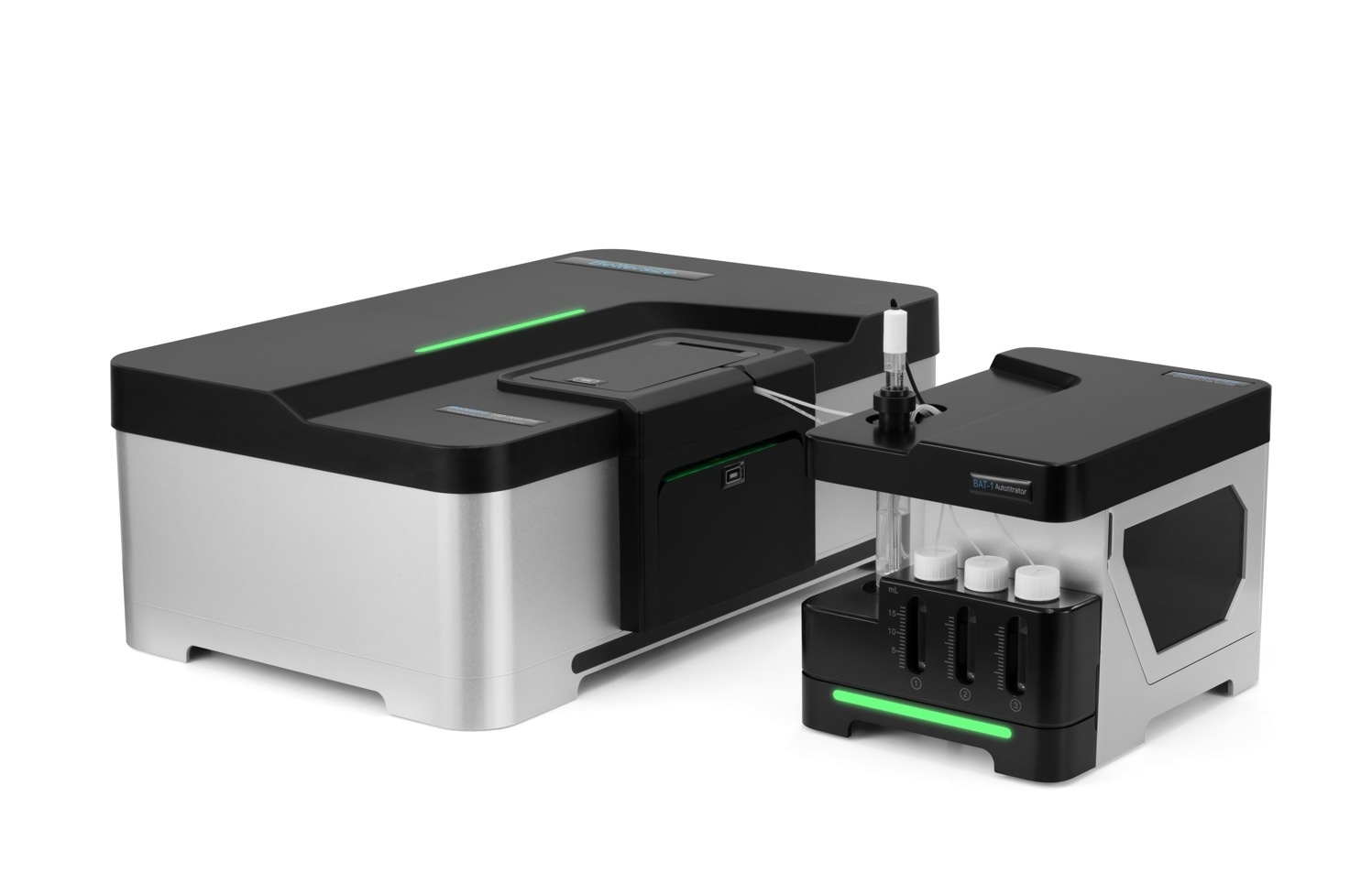The BeNano 90 Zeta is the latest generation of nanoparticle size and zeta potential analyzer designed by Bettersize Instruments. The system is integrated with dynamic light scattering (DLS), electrophoretic light scattering (ELS), and static light scattering (SLS) to deliver accurate measurements of particle size, zeta potential, molecular weight and rheological properties. Now with The BAT-1 Autotitrator, for analyzing the zeta potential as a function of pH and determining the isoelectric point (IEP) of a colloidal system.
The BeNano 90 Zeta instrument is widely utilized in academic and manufacturing processes of various fields, like chemistry, biology, chemical engineering, pharmaceuticals, food, materials, etc.
BeNano Series: Unveiling the Secrets of Nanoparticle Analysis
Video Credit: Bettersize Instruments Ltd.
Features and benefits
- Sensitive optical fiber detection system — signal-to-noise ratio is efficiently boosted by the outstanding sensitivity of the optical system
- High-performance He-Ne laser ensures the least maintenance cost, excellent stability, durability and high power
- Fast measurement capability — operations are quicker and results can be edited
- Disposable folded capillary cell — remarkable repeatability of zeta potential measurements and cross-contamination is avoided
- Intelligent adjustment of intensity — the intensity can be adjusted effectively in line with the signal-to-noise ratio
- Intelligent algorithm of result assessment — smart evaluation and processing of signal quality avoid the impact of arbitrary events
- Phase analysis light scattering — enables measurement of zeta potential and ensures low electrophoretic mobility
- Multipurpose calculation modes — various built-in calculation modes cover several scientific research and application fields
- Capillary sizing cell — sample volume as low as 3 to 5 μL and higher measurement accuracy for huge particles
- A wide range of temperature control — temperature can be changed from −10 °C to 110 °C to satisfy several measurement requirements and allow thermal stability analysis of specimens
- Highly stable optical design — provides highly repeatable results and does not require regular maintenance
BAT-1 Autotitrator
The BAT-1 Autotitrator is equipped with three high-precision titration pumps (with precision of 0.28 μL), and a magnetic stirrer, and is in combination with the BeNano series nanoparticle size and zeta potential analyzer for automatic acid-base titration and determination of isoelectric point (IEP). The pinch valve can close the circuit of the sample during the measurement, leading to high efficiency, accurate titration, good repeatability and the results being independent of operators. The disposable sample container can avoid the sample cross-contamination.

Image Credit: Bettersize Instruments Ltd.
A research-level software
Image Credit: Bettersize Instruments Ltd.
The BeNano range comes with software with a user-friendly interface, several kinds of report pages and result previews.
Software features
- Measurement interface displays real-time data and results of several types
- Standard Operating Procedure (SOP) guarantees the completeness and precision of parameters at the time of measurements
- Results and statistics — standard deviation and mean can be automatically calculated
- Life-long upgrades offered freely
- Statistics and overlay — results from several runs can be compared
- More than 100 parameters available, thus 100% meeting the requirements for research, QC, QA and production
Applications with DLS technique
- Study on reaction mechanisms and polymerization process
- Study on thermal-sensitive systems, for example, PNIPAm
- Particle size and distribution of biomacromolecules, polymers, colloids, self-assembling system, peptides, antibodies, antigens, proteins and non-metal/nano-metal particles
- Study on the kinetics of self-assembly and other processes of depolymerization and polymerization of macromolecules
Applications with ELS technique
- Industries include but are not restricted to chemicals, biology, chemical engineering, food and beverage, pharmaceuticals, environmental protection, abrasive and paints, and water treatment
- Study on surface modifications and surface electrical properties
- Stability research and control of suspension systems
- Electrophoretic mobility, zeta potential, and their distributions of suspension systems, such as macromolecules, colloids, emulsions, antigens, proteins, antibodies, coal-water slurries, and non-metal or nano-metal particles
- Regulating and tracking product stability
Applications with SLS technique
- Chemical engineering — characterizing polymers, supermolecules, and micelles
- Petroleum engineering — characterizing macromolecule additives and oil-displacing surfactants
- Verification of supermolecules and studies on self-assembling aggregates is performed
- Life science — characterizing proteins, polypeptides and polysaccharides
- Pharmaceuticals — aggregation of medications and study on stability